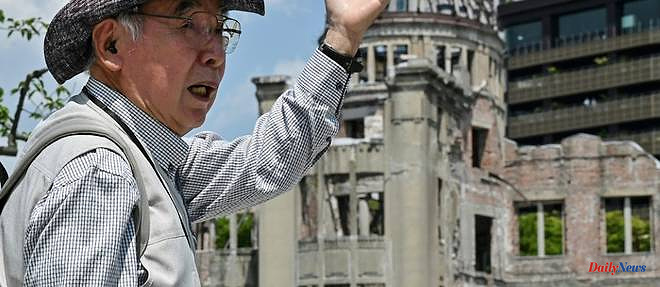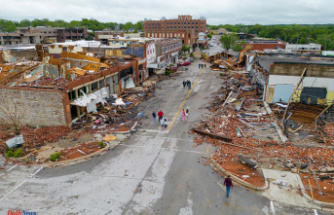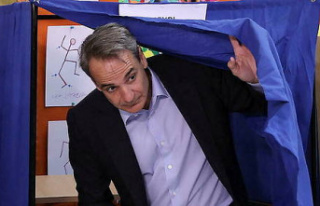On August 6, 1945, four-year-old Masao Ito was riding a tricycle near his home in Hiroshima (western Japan) when a bomb fell from the sky, changing his life forever.
He survived the nuclear attack and managed to return home, but the horror had only just begun. His father, who worked closer to the city center, searched for his 12-year-old brother in an apocalyptic landscape.
When he found him, he was so badly burned that their parents refused to allow Masao to see his brother. He died a few days later at home.
Masao's 10-year-old sister was in a close relative's house, completely destroyed by the bomb.
"People who fled the hypocenter headed for the outskirts, where our house was. They had terrible burns and could barely walk," the 82-year-old survivor told AFP.
His parents invited the survivors to rest in their house. "But they died, one after another." In the August heat, the bodies had to be moved, but there was no cemetery to take them to.
"They were transported to an open space, not in coffins but on top of each other. Gasoline was spilled to burn them," Ito said. "It was just awful, a terrible smell. It's a scene I wish I could forget."
A retired bank employee, Masao Ito has worked for nearly twenty years as a volunteer guide for the Hiroshima Peace Memorial Museum and is an activist against nuclear weapons.
He is one of a dwindling number of first-generation "hibakushas," survivors of the atomic bombings who killed 140,000 in Hiroshima and 74,000 in Nagasaki.
The leaders of the industrialized democracies of the G7 gathered in Hiroshima this week, are expected to speak with survivors.
Mr Ito wants to warn them: "If you have nuclear weapons, you may be tempted to use them, and accidents may occur. It is simply better not to have them."
Wearing big glasses and a pin representing a twisted missile surmounted by an anti-nuclear symbol, he acknowledges that a world without atomic weapons seems utopian, while Russia and North Korea regularly utter threats.
But Mr Ito believes the G7 can send a strong message from Hiroshima to world leaders. "As long as there are nuclear weapons in the world, it is possible that your city will become like Hiroshima. Are you ready to accept it?"
Masao Ito's childhood was shattered by the bomb: his father died of radiation and the family business went bankrupt.
He and his mother fled Hiroshima to escape their creditors. He caught tuberculosis and spent more than a year in a sanatorium, where he received an American package containing medicine and a Bible.
He read it, but when he came across a passage urging Christians to "love their enemies", he became angry and threw the Bible against a wall. "Why should I love America?" he remembers thinking at the time.
Mr. Ito later converted to Christianity, but his anger did not subside. When he started offering peace tours, he felt uneasy at the inscription on Hiroshima's cenotaph: "Rest in peace, we will not repeat this tragedy."
"I felt I had to promise to avenge the souls of those who died so they could find peace."
Over time, and especially when he encountered Americans upset by what they had learned in Hiroshima, his feelings changed and he "began to finally understand" what the phrase from the Bible meant.
According to him, schoolchildren among the tour groups he guides have an important role to play. "I can't go on forever. I say to the students: it's up to you now to (...) achieve a world without nuclear weapons".
21/05/2023 11:39:02 - Hiroshima (Japanese) (AFP) © 2023 AFP












